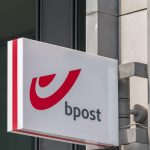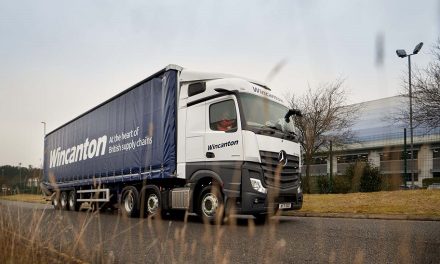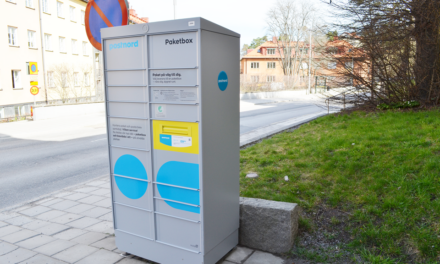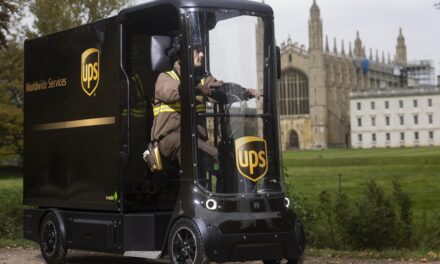
Building Brown Bigger
Showing the kind of force it exerts on the logistics market, UPS bought up one of North America's largest freight operators and raised new questions about how far consolidation of service providers will go and what the parcel giant's increasingly large competitors will do to respond.
UPS bought Menlo Worldwide Forwarding, the $1.9 billion integrated and forwarding business that once carried the Emery Worldwide name around the world, from CNF for what appeared to be a fire sale equivalent of $260 million. With barely a financial dent to a balance sheet that includes more than $4.5 billion in cash and cash equivalents, UPS moved to fill a gap in its own heavy freight services and freed CNF from a financially struggling business that has distracted the company from its successful and growing Con-Way regional LTL operation.
Con-Way's "superior franchise is less obscured by the turmoil/problems at the Menlo heavy air freight forwarding unit," Scott Flower of Smith Barney wrote in an investment report.
Shippers will see UPS extending its service portfolio through its UPS Supply Chain Solutions unit, which gains a domestic integrated freight operation built around a Dayton, Ohio, hub and an international forwarding business largely weighted toward Europe. It extends a consolidation push that has wiped some of the United States' largest players from the role of independent logistics operators, but experts say the market remains too splintered to see much impact on rates for shippers.
"Shippers will get a better solution out of this, but there is so much visibility in supply chains right now, especially regarding rates, that I can't see UPS being able to simply raise prices as it wants," said Douglas Fisher, a partner in Cascade Consulting Fisher, which does supply chain consulting for shippers. "BAX Global and EGL remain formidable competitors in that field."
Under the deal expected to close in the fourth quarter, UPS is buying Menlo Worldwide Forwarding for $150 million in cash and assuming $110 million in long-term debt, most of it related to the company's Dayton, Ohio, air freight hub.
CNF keeps Menlo Logistics and the related Vector SCM operation.
The sale price is a bargain by industry standards. By contrast, UPS paid $437 million in stock for the Fritz Cos. in May 2001 and Deutsche Post World Net paid $1.4 billion for AEI when it bought the largest U.S.-based forwarder in 2000.
Although a big revenue generator, Menlo Forwarding has posted $160 million in operating losses since 2001, has not posted a profitable quarter since 2000 and has seen its revenue fall by 28 percent since then in ceding the top spot in the North American heavyfreight air cargo market to BAX Global. The company gave up its air operating certificate in 2001 following a federal safety investigation triggered by the fatal crash of a DC-8 freighter in 2000.
After years of questions about what they would do to repair the business, CNF officials barely disguised their enthusiasm over the split. "This is a unit that has been struggling for the past couple of years and the company received what the board felt was a good offer," said CNF spokeswoman Nancy Colvert.
CNF Chairman and interim CEO Keith Kennedy said the company will "be in our best financial position in 15 years" when the Menlo Forwarding sale closes. "It's no secret that some of CNF's parts were viewed as worth more than its whole due largely to the lack of profit from forwarding," said Kennedy.
Con-Way, by contrast, has become a star performer in a burgeoning regional LTL field. It has near doubled its revenue since 1996, and recorded a $195.3 million operating profit last year on $2.2 billion in revenue and is on track to do even better this year. The trucker added a forwarding service called Con-Way Now that appeared to compete directly with Menlo's own service.
"For CNF, the sale eliminates an underperforming division that has overshadowed the company's other stellar asset, namely Con-Way," wrote Morgan Stanley freight transportation analyst James Valentine.
UPS is shoring up a strategy of bundled services in response to FedEx's aggressive challenge on the ground and DHL's expansion into the U.S. market.
The parcel giant added breadth to its UPS Supply Chain Solutions unit in 2001 with the purchase of global forwarding and customs giant the Fritz Cos., but other competitors have matched that growth and added more in the meantime.
"The reality is that (UPS Supply Chain Solutions) is still a very small player," said David Hoppin, a principal with the MergeGlobal consultancy. "Acquiring Menlo Forwarding gives them enhanced international presence and depth, and is certainly consistent with their bundling strategies."
It also may put pressure on FedEx to scale up its forwarding and logistics business, particularly in the international arena. FedEx has been highly successful in LTL through its FedEx Freight business but has made only minor moves in forwarding with its relatively small FedEx Trade Networks operation. And UPS still has huge cash reserves that industry observers believe the company will put to use.
"Menlo fills a strategic gap in heavyweight for them," Fisher said. "Whether that means they still have a gap in domestic LTL is another question. The business in North America is changing so much that where domestic LTL stops and air freight begins is looking less and less clear every day," he said.
Menlo Forwarding operates in more than 175 countries and territories, and its customers span a broad range of industries, including pharmaceuticals, apparel, high tech/electronics, government, consumer goods and retail. The global freight forwarder provides a full suite of heavy air freight forwarding services, ocean services and international trade management, including customs brokerage.
The acquisition "makes sense both from a strategic and operational perspective," said UPS SCS spokeswoman Lynette McIntire. "For us it adds a lot of heavy freight capacity and adds to our capabilities in freight forwarding, guaranteed air freight and ocean freight."
Hoppin said the acquisition must be viewed separately in the international and domestic world.
Internationally, the Atlanta-based integrator estimates it will vault from the 11th largest air freight forwarder in the world to fifth biggest, though it didn't provide the specific figures to back up that claim.
On the domestic side, UPS says the purchase will allow it to introduce new time-definite products such as overnight, two-day and deferred heavy air freight.
But it is domestically where Menlo Forwarding had its most serious difficulties, noted Hoppin. "On the domestic side, UPS is not a low cost producer of heavy freight, so I don't know how they'll operate that business," he said. "But overall, UPS can argue that it will make Menlo more profitable because it will drive down costs and make it a better, more efficient company."
Kennedy said the company's cash position will increase by $130 million and its debt will decrease by $110 million as a result of the sale. "Let me be clear that we do not intend to turn around and go out and make a large acquisition," he said. "We will be careful with the cash."
Although there are no plans to fully merge the operations of Menlo Logistics and Con-Way, Kennedy said CNF would seek synergies between its two remaining units. "We're going to move far closer to an integrated company," he said. "It's not our intention to fold (Menlo Logistics) under Con-Way at this time. But we are going to operate more like one company and we are going to have to right size the corporation."
He said there are no plans to sell Menlo Logistics, but noted, "If someone approached us and we got an offer, we'd have to consider it. … But right now there are no plans and our logistics companies retain all of their capabilities with no effect on existing contracts."
Menlo Worldwide spokesman David Benton said Menlo Logistics could use the cash from the UPS deal to build its business.
"The thinking here is that (the UPS buy) frees up the Menlo organization to move further in the area of logistics and a global supply chain with deeper pockets to do so," he said. "We'll be more robust in that area. We'll use the cash (from UPS) to grow the logistics unit."
According to Benton, talks between UPS and CNF regarding Menlo Forwarding initially took place "a year ago" but were "put on the back burner" until the last couple of months.
Kennedy said CNF explored various downsizing options and concluded the UPS offer was the best way to go. He added that UPS approached CNF with an offer for Menlo Forwarding and that CNF accepted it "as is."
The conclusion is "hardly surprising," said MergeGlobal's Hoppin. "UPS has been sniffing around for a while and had people talking, but no one was exactly sure what its plans were. You've got to give UPS credit for keeping everyone guessing until it finally made a deal."
UPS buy of Menlo Worldwide builds logistics operation, solves CNF's problems with struggling forwarding unit












